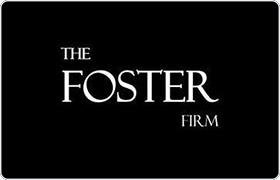Bagdad Felony Lawyer, Florida
Sponsored Law Firm
-
 x
x

Click For More Info:
-
The Foster Firm
42 Business Centre Drive Suite 301 Miramar Beach, FL 32550» view mapCriminal Defense Law We Will Protect Your Rights!
Our law firm has been operating for more than 15 years and our team has numerous years of experience between them, to ensure you get the best legal advice possible.
800-940-3710
Not enough matches for Bagdad Felony lawyer.
Below are all Bagdad Criminal lawyers.
Gillis E. (Beau) Powell
✓ VERIFIEDMedical Malpractice, Family Law, Criminal, Wills, Mass Torts
Beau was born and raised in Crestview, Florida. In 2006 he graduated from Northwest Florida State College with an Associates Degree in Criminal Justic... (more)
William Randall Wade
Government, Employment, Family Law, Criminal, Consumer Rights
Status: In Good Standing
 James J. Foster Miramar Beach, FL
James J. Foster Miramar Beach, FL Practice AreasExpertise
Practice AreasExpertise

